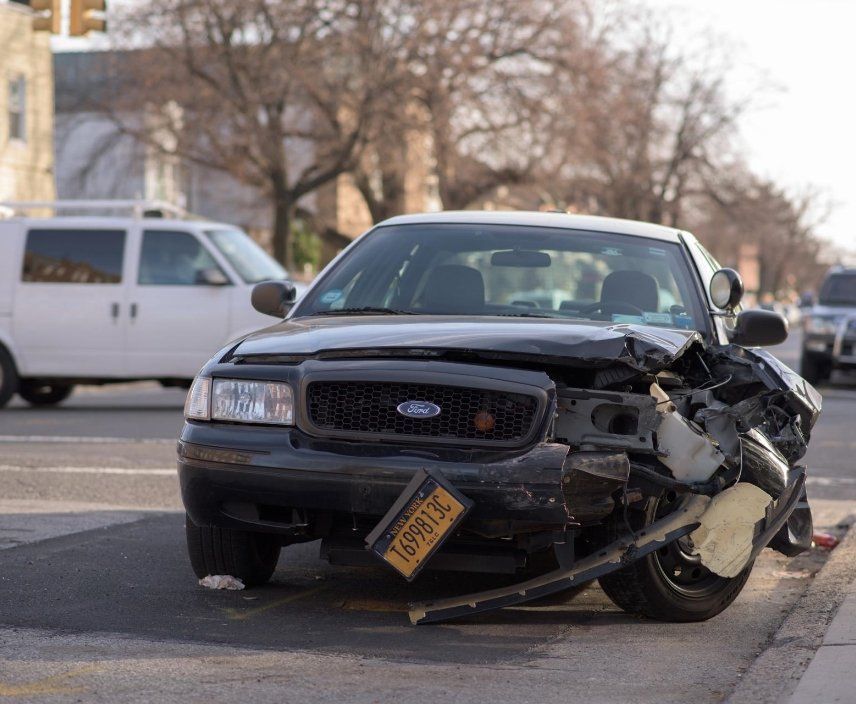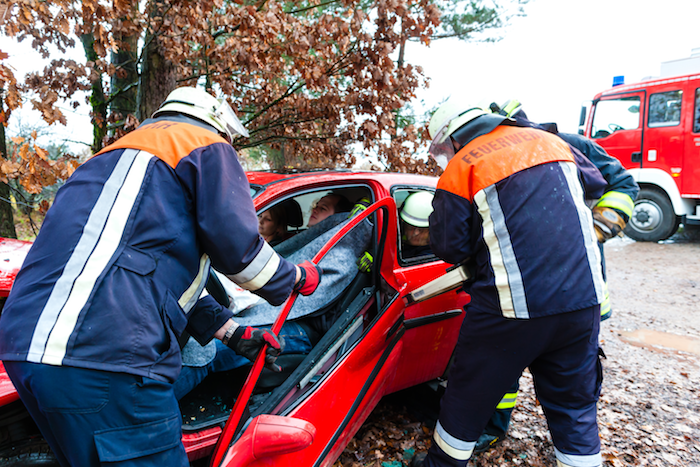Vehicular Assault in Phoenix, Arizona - You Have Legal Options
KOLOW LAW FIRM - VEHICULAR CRIME PROFESSIONALS IN PHOENIX and scottsdale, AZ
Vehicular assault is Arizona’s criminal version of a car accident. The crime is specifically called Vehicular Aggravated Assault (sometimes just Aggravated Assault). If you have been indicted or arrested for Vehicular Aggravated Assault then there some things you need to know.
Vehicular assault is typically charged when there is a car accident, a person is severely injured, and the cause of the accident was impairment by alcohol or drugs. Less often, it is charged in cases where there is no impairment, but extremely reckless driving is alleged.
Ready to Fix This?
Vehicular Aggravated Assault
What makes a civil car accident, where the remedy is solely money, into a criminal case is what the law refers to as mens rea. Literally translated from Latin the term means a “guilty mind.” However, in a courtroom the term is used more broadly. A person’s means rea is the mental state behind the person’s actions.
Causing Injury
If you strike another person in the face causing them injury – is that a crime? The law answers that question by determining what was your mental state at the moment you caused their injury. An unintentional blow to another’s face, that was unavoidable, is simply an accident. On the other end of the spectrum, a punch that was intended to connect with a person’s nose is a criminal assault.
Aggravated Assault v. Vehicular Assault
Arizona does not have a specific law for vehicular assault. The crime requires violating a combination of several statutes. A starting point is our state’s felony assault law (called Aggravated Assault).
Define Aggravated Vehicular Assault
A.R.S. 13-1203, referenced in the statute, is Arizona’s misdemeanor assault law. Accordingly, a felony assault – first requires a misdemeanor assault – as a predicate to a felony assault.
Put another way, Arizona requires a misdemeanor assault as a foundation for a felony assault.
Aggravated Vehicular Assault Negligent or Reckless
Misdemeanor assault, as defined A.R.S. 13-1203, states a person commits assault by:
1. Intentionally, knowingly or recklessly causing any physical injury to another person; or
2. Intentionally placing another person in reasonable apprehension of imminent physical injury; or
3. Knowingly touching another person with the intent to injure, insult or provoke such person.
As you can see, the law provides several possible mens rea (mental states) that can violate the statute. It is not just intentional conduct that is criminalized. Essentially, the Arizona legislature has made a car accident an assault, if your actions are either recklessly or knowingly cause another person’s injury.
A.R.S. 28-13-1204
Thus, once it is determined a person’s actions have violated one of these three scenarios, then a vehicular assault analysis turns back to A.R.S. 13-1204.
This statute asks the question – did the assault occur under one of the specified “circumstances”? Then the statute provides eleven “circumstances.” In vehicular assault cases the three (3) most likely to apply are:
1. Serious Physical Injury: If the person causes serious physical injury to another.
The term “serious physical injury” is defined by statute. The provides that it includes “physical injury that creates a reasonable risk of death, or that causes serious and permanent disfigurement, serious impairment of health or loss or protracted impairment of the function of any bodily organ or limb. See A.R.S. § 13-105(39)
- PROSTHESIS – A prosthesis is not a “body organ or part” within the meaning of the aggravated assault statute. State v. Martinez, 220 Ariz. 56, 202 P.3d 521 (App. 2008).
- PROTRACTED IMPAIRMENT – To constitute “protracted impairment” of a limb to support a finding of serious physical injury the impairment must be more protracted than either a temporary but substantial impairment of the use of a limb or the healing time of a normal fracture. State v. George, 206 Ariz. 436, 79 P.3d 1050 (App. 2003), review denied.
- HEALTH DEFINED – While “health” in the phrase “serious impairment of health”, § 13-105, might be defined to include mental or emotional health, when read in conjunction with provision of § 13-105 stating that physical injury means the impairment of physical condition, it was clear that legislature intended to limit aggravated assault statute, this section, to impairments of physical health. See State v. Garcia, 138 Ariz. 211, 673 P.2d 955 (App. 1983).
- BROKEN NOSE – A broken nose is “fracture of any body part” within the meaning of Arizona’s aggravated assault statute. See State v. Tiscareno, 190 Ariz. 542, 950 P.2d 1163 (App. 1997).
- VISIBLE LACERATIONS – A visible three-inch laceration on victim’s hand was found to be “disfiguring,” within the meaning of Arizona aggravated assault statute, regardless of whether laceration was temporary and would heal. See State v. Pena (2014).
2. Deadly Weapon or Dangerous Instrument: If the person uses a deadly weapon or dangerous instrument.
3. Temporary But Substantial Disfigurement:
If the person commits the assault by any means of force that causes temporary but substantial disfigurement, temporary but substantial loss or impairment of any body organ or part or a fracture of any body part.
Defenses | Vehicular Aggravated Assault | Arizona
Failure To Wear a Seat Belt
An automobile accident victim’s failure to wear seat-belt was not “intervening, superseding cause” of the serious injuries that he sustained, and did not preclude prosecution of the other driver for aggravated assault for recklessly causing “serious injury” to the victim.
Also, the other motorist should reasonably have foreseen that some of the potential victims of his drunken driving would not be wearing seat belts. See State v. Freeland, 176 Ariz. 544, 863 P.2d 263 (App. 1993), review denied.
Lesser Included Offenses
Where Endangerment, unlike aggravated assault, requires that victim actually be placed in a substantial risk of imminent death or physical injury, endangerment is not a lesser included offense of aggravated assault, and thus the defendant was not entitled to an instruction on this offense in aggravated assault prosecution. See State v. Rineer, 131 Ariz. 147, 639 P.2d 337 (App. 1981).
"Lawrence represents very high-profile clients who greatly depend on a good outcome, and this guy will deliver.
This is a prosecutor's worst nightmare, and it should be that way if you need an attorney."
- David E.
Real Client's Husband, Phoenix, AZ
Hiring an Vehicular Aggravated Assault Attorney in Phoenix, AZ
Arizona DUI law is extremely complicated and has severe consequences. DUI law is commonly referred to as a minefield. An attorney must be competent in the Arizona Rules of “Criminal” Procedure, the Arizona Rules of Evidence, the United States and Arizona Constitutions, and the Arizona Department of Motor Vehicles Rules and Regulations.
An attorney cannot do anything for you unless he or she has extensive experience in these areas. Police officers are only human and do commit legal errors. However, only an experienced DUI attorney will be able to find these errors and use them to help his or her client.
You should choose an experienced DUI attorney for the same reason you should choose a qualified doctor. If you break your wrist, you go to a doctor that specializes in wrist injuries. When you are charged with a DUI, you should hire a qualified DUI attorney.
An experienced Arizona DUI attorney can analyze your case for legal errors and defenses. He or she can have blood samples independently analyzed, look for suppression issues, review calibration / COBRA records of breath machines, find the right expert witnesses for your trial, and assist you with your driver’s license issues.
For more information, call our office at (602) 494-3444 or visit our contact page.
What Real People Are Saying
That is, DUI cases actually dismissed. Verifiable not guilty verdicts. Blood alcohol evidence truly suppressed as witnessed by judges, other lawyers, and newspapers.
Real Client's Husband, Phoenix, AZ
"Lawrence represents very high-profile clients who greatly depend on a good outcome, and this guy will deliver.
This is a prosecutors' worse nightmare, and it should be that way if you need an attorney."
- David E.
REAL CLIENT, PHOENIX, AZ
It was miracle!... A lot of people don't really understand the benefit of having an attorney who used to be a prosecutor. They know all the little tricks and scare tactics the state has as opposed to just hiring an attorney who is a little fish in a big pond."
- Joe C.
Contact Us Today!
For more information, call our office at (602) 494-3444 or fill out the form and we will get back to you.
Contact Us
We will get back to you as soon as possible.
Please try again later.
Arizona DUI Blog



DUI Library
The best DUI defense stuff that only a few know and none want to share. A one of a kind annotated resource for lawyers, people accused, or anyone who wants to see what’s going on in our justice system with DUI cases…and how to fix it.

Contact Information
Office Hours
- Mon - Fri
- -
- Sat - Sun
- Closed
What Happens After You Reach Out
A team member will begin reviewing your case.
We will contact you to ask questions and go over your options.
We will determine, together with you, what makes sense for the next step for you and your family to take.
Ready to Fix This?
Contact Us
We will get back to you as soon as possible.
Please try again later.
OUR SERVICES
QUICK LINKS
CONTACT US





